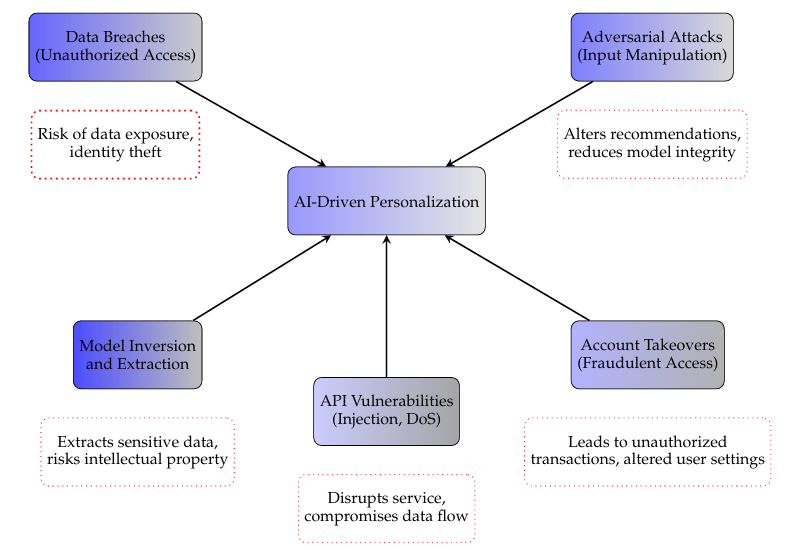Dynamic Cybersecurity Strategies for AI-Enhanced eCommerce: A Federated Learning Approach to Data Privacy
Abstract
AI in eCommerce has implemented machine learning, natural language processing, and more recently advanced to optimize recommendations, pricing, and content for better personalization of customer experiences. The more personalized the user's experience, the greater their exposure to various cybersecurity threats around data breaches, adversarial manipulations, and unauthorized account access. This paper explores adaptive cybersecurity protocols that can protect these AI-driven personalization systems without sacrificing their overall effectiveness. We also touch on context-aware authentication and access control, such as risk-based adaptive authentication and zero-trust architecture, which add to security measures responsive to users' real-time behavior. It examines methods that will protect data and AI models from leakage and model exploitation using federated learning, homomorphic encryption, and differential privacy. We analyze AI-powered anomaly detection techniques that help in rapid identification and response to threats, and secure API management practices that prevent interface abuse for communication. Great emphasis is put on striking the balance between personalization and security, calling for transparency via explainable AI and privacy-sensitive user interfaces. From our analysis, we believe that adaptive cybersecurity protocols can reduce risks without significantly compromising the benefits of personalization.

Downloads
Published
How to Cite
Issue
Section
License
Copyright (c) 2019 Applied Research in Artificial Intelligence and Cloud Computing

This work is licensed under a Creative Commons Attribution-NonCommercial-NoDerivatives 4.0 International License.




